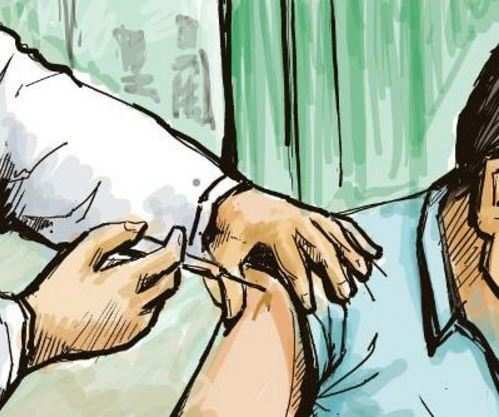 KARACHI At least 90 people, including 65 children, are believed to have been infected with the HIV virus in Pakistan by a doctor using a contaminated syringe, officials said Friday.
KARACHI At least 90 people, including 65 children, are believed to have been infected with the HIV virus in Pakistan by a doctor using a contaminated syringe, officials said Friday.“We have arrested a doctor after receiving complaints from the health authorities,” said Kamran Nawaz, the local police chief heading the case in Pakistan’s southern city of Larkana.
“We are told that the doctor also has HIV,” he said. Authorities were first alerted last week after 18 children from a town on the outskirts of the city tested positive for the virus, which causes AIDS, prompting health officials to carry out wider screenings. Dozens more infections were found.
“More than 90 people have tested HIV positive and the number of children is around 65,” Dr Abdul Rehaman, a district health official in Larkana, said.
A second official confirmed the outbreak, but gave slightly different figures.
Authorities said they had traced the outbreak to a single doctor, who appears to have been using a contaminated syringe on patients.
Azra Pechuho, Sindh province’s health minister, confirmed his arrest. “The blood of the parents of the infected children was also tested, but their results were negative,” Pechuho added.
Officials have since launched an even larger testing and education drive.
While Pakistan is considered a low-prevalence country for HIV, the disease is expanding — mostly among intravenous drug users, sex workers and migrant labourers who have returned from the Gulf.
AIDS drugs prevent sexual transmission of HIV in gay men
AEuropean study of nearly 1,000 gay male couples who had sex without condoms — one partner had HIV and was taking antiretroviral drugs to suppress it — has found the treatment can prevent sexual transmission of the virus. After eight years of follow-up of the serodifferent couples, the study found no cases of HIV transmission within couples. Researchers said this proves using antiretroviral therapy to suppress the AIDS virus to undetectable levels also means it cannot be passed on via sex.
“Our findings provide conclusive evidence for gay men that the risk of HIV transmission with suppressive ART is zero,” said Alison Rodger, a professor at University College London who co-led the research.
She said this could prevent HIV transmission in high-risk populations. In this study, researchers estimated that suppressive ART had prevented around 472 HIV transmissions during the eight years.